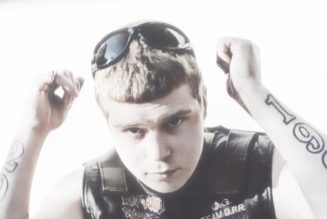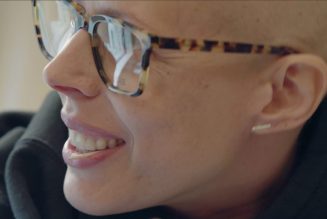Economy
How Nigerians used fake documents to wire funds from Kenya to Citibank
Friday May 12 2023
Documents filed in court reveal a series of text messages from a RemX director sharing details of how they dodged regulatory dragnet to move huge sums of money. PHOTO | POOL
A Nigerian firm that was at the centre of a multi-billion money laundering probe last year used fake documents to wire millions of dollars from Kenyan banks to American bank Citibank.
RemX Limited, which was investigated by the Assets Recovery Agency (ARA) on fears of card fraud and money laundering and later cleared, duped the bank’s compliance teams and Kenyan regulators using fake agreements, disclosures in a new case filed by Hong Kong-based firm at the High Court has revealed.
Whatsapp group messages among RemX and Lae Technologies Hong Kong Limited representatives filed in court have exposed how the payments service company forged documents to move billions of cash without raising suspicion for four years.
Lae Technologies wants the High Court to freeze RemX’s accounts and its affiliates pending the determination of a suit seeking payment of $88 million as the balance for software sold to the Nigerians.
Documents filed in court reveal a series of text messages from Nehikhare Eghosasere—a RemX director– sharing details of how they dodged regulatory dragnet to move huge sums of money in and out of the country through Kenyan banks and Citibank.
“To prevent probing questions from Citibank’s compliance team, we will need to ensure that the paper work is super super tight. Typically, how we have circumvented this in the past is to ensure that the beneficiary name in the SWIFT instruction is the same as the sender’s name. That’s why we have RemX set up in multiple countries so that it’s seen as “Same Company Funds Transfer”,” Mr Eghosasere said in a Whatsapp message dated October 9, 2020.
Nigerian company registry shows RemX is registered in the names of Nehikhare Eghosasere and Demuren Olufemi Olukunmi, with its offices on 16C Ruxton Road, Ikoyi, an island in Lagos, the commercial capital of Nigeria.
The Kenyan entity under the same name is owned by Mr Eghosasere with 200 shares and Demuren Olufemi Olubukunmi who holds 800 shares, according to information available in the Business Registration Service online portal.
The intended purpose of the transactions is not clear in the series of exchanges but ARA last year cited the company for moving illicit money that could have been proceeds of crime.
“… just want to put measures in place to ensure it’s sustainable and doesn’t become problematic down the line when Citibank starts asking questions. They would usually come to ask questions in 1-2 years after the transaction lol. They are such an annoying bank. If we have some sort of dummy agreement with the trust. Just to present to Citibank (whenever they ask questions), that will be great,” Mr Eghosasere told his would-be partners.
The two together with Olubunmi Akinbanjo Akinyemiju have cross-continental operations and have multiple companies registered in Kenya, the US, UAE and Nigeria.
The Lagos-based payments firm and other companies registered under the same names received over Sh84 billion and wired out Sh78 billion between 2019 and last year through Equity Bank and UBA, ARA investigations showed.
Their other companies that were part of last year’s probe and have been listed as interested parties in the latest court fight include Pumicells Ltd, OIT Africa Ltd, Avalon Offshore Logistics Ltd, RemX Capital Ltd and Multigate Limited.
Equity Bank and UBA Bank could find themselves in trouble following the revelations that the firm used fake agreements to move billions, failing the Know Your Customer (KYC) requirements meant to curb the flow of illicit cash and money laundering.
Kenyan banks are expected to alert the Financial Reporting Centre (FRC) of suspicious transactions under anti-money laundering laws, including reporting large transactions and undertaking due diligence on customers.
ARA has since withdrawn the case against RemX which saw the High Court lift orders to unfreeze Sh5.6 billion belonging to the firm.
Read: Court lifts Sh5.6bn dirty cash freeze linked to Nigerians, politician
The transactions into Kenya were done through multiple dollar accounts held at Equity and UBA. However, the funds sent to the US were wired from Equity through Citibank as the correspondent bank.
Mr Eghosasere in the exchanges said local banks did not pose any risk to their operations but Citibank had strict anti-money laundering (AML) rules which could land them in problems.
“Equity Bank is the sending bank, but Citibank is the correspondent bank. And they (Citibank always give the sending (and receiving banks) “headache”,” Mr Eghosasere told the group.
The documents have also revealed that before flying into regulatory turbulence last year, the Nigerians were keen on making Kenya their payment settlement hub which could partly explain the outsized amounts of foreign currencies wired during the period.
“RemX typically moves money globally around the world. We are currently looking to set up our settlement hub in Kenya, but they need us to get a remittance license anywhere else in the world… Makes sense? So, we just need a license in the easiest jurisdiction,” Mr Eghosasere.
The CBK and the Financial Reporting Centre —the agency that tracks illicit money—have maintained in the past that the transactions by the firms were illegal and the firms are not authorised to process payments in Kenya.









